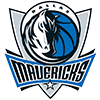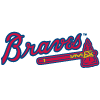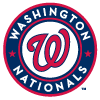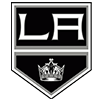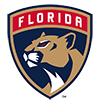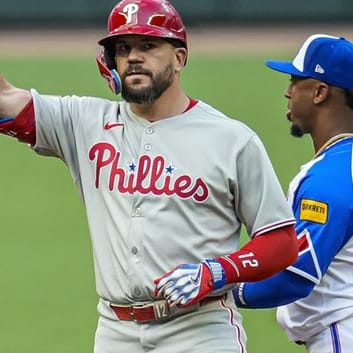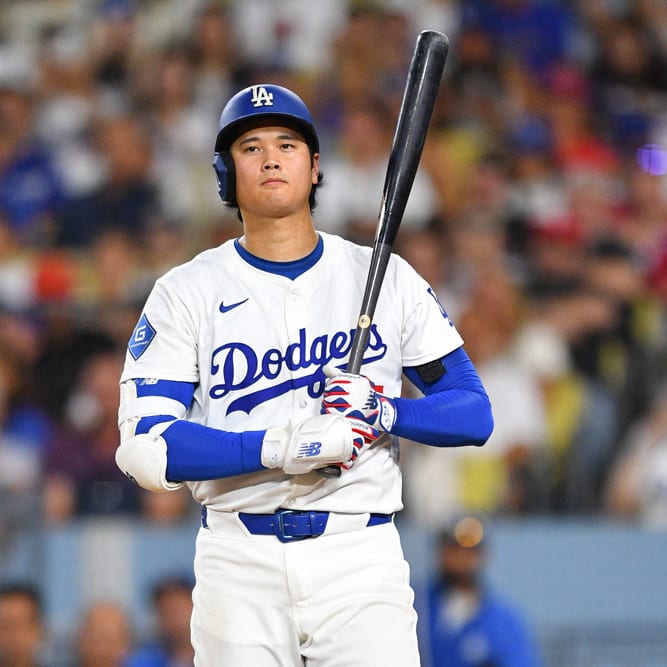Adding ISO to your DFS arsenal at CI
I could start every single strategy article I write about MLB DFS the exact same way...frustration with the day to day variance inherent in the game. From the first week of this season, when I committed to playing daily MLB, every day, I've worked hard on refining my personal strategy for building a successful lineup. I've added in various tools, dropped others that were too time consuming and yielded too little reward. I've written about all of this before. The underlying theme is that baseball is just a lot harder to predict than basketball or even football.
Actually, it's not harder to predict. Baseball has the best data available of any of the major sports, and there are several algorithms that argue that they weight all the variables optimally to spit out the best plays of the day, some even digging down to batter and pitcher success against/using specific pitches. That's incredible. So, with tools like those, it's not hard to predict baseball. It's hard to be right.
How often does your most logical, most researched, most justifiable play go 0/4? Half the time? Seems about right to me. And that's crazy. It doesn't matter how much salary cap you expended on said player, how good the circumstances are, he might not score you a single fantasy point. Now that is nearly impossible in NBA, and pretty darn rare in NFL. MLB is the only sport where money doesn't buy you any
Adding ISO to your DFS arsenal at CI
I could start every single strategy article I write about MLB DFS the exact same way...frustration with the day to day variance inherent in the game. From the first week of this season, when I committed to playing daily MLB, every day, I've worked hard on refining my personal strategy for building a successful lineup. I've added in various tools, dropped others that were too time consuming and yielded too little reward. I've written about all of this before. The underlying theme is that baseball is just a lot harder to predict than basketball or even football.
Actually, it's not harder to predict. Baseball has the best data available of any of the major sports, and there are several algorithms that argue that they weight all the variables optimally to spit out the best plays of the day, some even digging down to batter and pitcher success against/using specific pitches. That's incredible. So, with tools like those, it's not hard to predict baseball. It's hard to be right.
How often does your most logical, most researched, most justifiable play go 0/4? Half the time? Seems about right to me. And that's crazy. It doesn't matter how much salary cap you expended on said player, how good the circumstances are, he might not score you a single fantasy point. Now that is nearly impossible in NBA, and pretty darn rare in NFL. MLB is the only sport where money doesn't buy you any security, especially for your hitters.
I've tried to let a lot of the frustration go, take it in stride, know that everyone else is in the same boat, etc. That hasn't stopped me from trying to figure out the best way to predict DFS success for hitters. Today I want to focus on the corner infield spots. You typically are hoping for power in the form of homeruns and extra base hits from these two positions. I usually pay up here while saving in middle infield and outfield. So how to make that investment a little more sound?
I took a look at the top 15 DFS 1B and 3B according to fantasy points per game (FPT/G):
| POS | PLAYER | TEAM | DD Salary | FPT/G |
| 1B | Jose Abreu | White Sox | 12800 | 18.3 |
| 1B | Edwin Encarnacion | Blue Jays | 11650 | 18.3 |
| 1B | Paul Goldschmidt | Diamondbacks | 12500 | 18.2 |
| 1B | Miguel Cabrera | Tigers | 12000 | 16.5 |
| 1B | Anthony Rizzo | Cubs | 11300 | 16.4 |
| 1B | Brandon Moss | Athletics | 10400 | 15.5 |
| 1B | Albert Pujols | Angels | 10900 | 15.2 |
| 1B | Freddie Freeman | Braves | 10200 | 15.2 |
| 1B | David Ortiz | Red Sox | 10100 | 14.7 |
| 1B | Steve Pearce | Orioles | 8450 | 14.1 |
| 1B | Michael Cuddyer | Rockies | 9650 | 14.1 |
| 1B | Adam LaRoche | Nationals | 8500 | 14.1 |
| 1B | Mike Napoli | Red Sox | 9350 | 13.9 |
| 1B | Mark Teixeira | Yankees | 9350 | 13.6 |
| 1B | Joey Votto | Reds | 9400 | 13.2 |
____________________________________________________________
| POS | PLAYER | TEAM | DD Salary | FPT/G |
| 3B | Josh Donaldson | Athletics | 10100 | 15.6 |
| 3B | Anthony Rendon | Nationals | 10350 | 15.6 |
| 3B | Adrian Beltre | Rangers | 10200 | 15.4 |
| 3B | Todd Frazier | Reds | 10250 | 15.3 |
| 3B | Kyle Seager | Mariners | 9800 | 14.2 |
| 3B | Ryan Zimmerman | Nationals | 10450 | 13.6 |
| 3B | Brock Holt | Red Sox | 9350 | 13.5 |
| 3B | Neil Walker | Pirates | 9550 | 13.3 |
| 3B | Lonnie Chisenhall | Indians | 7600 | 13.1 |
| 3B | Conor Gillaspie | White Sox | 9050 | 12.8 |
| 3B | Trevor Plouffe | Twins | 8250 | 12.7 |
| 3B | Aramis Ramirez | Brewers | 8550 | 12.6 |
| 3B | Carlos Santana | Indians | 9000 | 12.4 |
| 3B | Matt Carpenter | Cardinals | 8650 | 12.4 |
| 3B | Casey McGehee | Marlins | 7350 | 12.3 |
Notables who don't make the cut include Adrian Gonzalez, Adam Dunn, Justin Morneau, and Chris Davis at first, David Wright and Evan Longoria at third. As you can see, salary follows DD pts closely.
Next, I went to FanGraphs to get the 2014 season data for these positions (no splits, just full season data for this year) to see what statistics most reliably sorted players into the lists shown above. In other words, I want the player who is going to succeed best in my DFS scoring system, so I want to know what actual baseball statistic of his predicts that. So I sorted first and third basemen on things like HR, SB, RBI, R, wOBA, OPS, and ISO.
Some of my instincts going in:
- Most DFS sites weight HR extremely heavy in their scoring.
- Sometimes it's SB that push otherwise similar players apart.
- A lot of experts and professional DFS players rely on wOBA.
None of these produce a ranked list of corner infielders that approximates the goal, however. I found that the best metric to rank these players on to match the DFS FPT/G ranks was ISO, or isolated power. Here's a link to the FanGraphs excellent description.
First Base:
| Name | Team | HR | R | RBI | SB | ISO | wOBA |
| Jose Abreu | White Sox | 29 | 51 | 74 | 1 | 0.327 | 0.405 |
| Edwin Encarnacion | Blue Jays | 26 | 57 | 70 | 2 | 0.314 | 0.411 |
| Brandon Moss | Athletics | 22 | 48 | 67 | 1 | 0.261 | 0.377 |
| Paul Goldschmidt | Diamondbacks | 18 | 71 | 65 | 8 | 0.253 | 0.414 |
| Anthony Rizzo | Cubs | 23 | 65 | 53 | 2 | 0.242 | 0.392 |
| Miguel Cabrera | Tigers | 14 | 58 | 76 | 1 | 0.22 | 0.383 |
| Lucas Duda | Mets | 14 | 38 | 49 | 2 | 0.217 | 0.361 |
| Michael Morse | Giants | 14 | 36 | 47 | 0 | 0.213 | 0.358 |
| Mark Teixeira | Yankees | 17 | 39 | 48 | 1 | 0.212 | 0.339 |
| Adam Dunn | White Sox | 14 | 34 | 39 | 1 | 0.209 | 0.351 |
| Albert Pujols | Angels | 20 | 59 | 65 | 4 | 0.205 | 0.344 |
| Matt Adams | Cardinals | 12 | 32 | 43 | 3 | 0.204 | 0.371 |
| Chris Davis | Orioles | 16 | 39 | 50 | 2 | 0.197 | 0.31 |
| Freddie Freeman | Braves | 13 | 65 | 53 | 0 | 0.191 | 0.373 |
| Justin Morneau | Rockies | 13 | 38 | 60 | 0 | 0.189 | 0.366 |
Third Base:
| Name | Team | HR | R | RBI | SB | ISO | wOBA |
| Kyle Seager | Mariners | 16 | 40 | 64 | 4 | 0.216 | 0.366 |
| Josh Donaldson | Athletics | 21 | 65 | 70 | 3 | 0.215 | 0.338 |
| Todd Frazier | Reds | 20 | 58 | 54 | 15 | 0.211 | 0.371 |
| Adrian Beltre | Rangers | 14 | 52 | 52 | 1 | 0.199 | 0.391 |
| Anthony Rendon | Nationals | 13 | 69 | 53 | 8 | 0.196 | 0.352 |
| Mark Reynolds | Brewers | 14 | 34 | 33 | 5 | 0.179 | 0.303 |
| Lonnie Chisenhall | Indians | 9 | 41 | 41 | 2 | 0.179 | 0.395 |
| Carlos Santana | Indians | 14 | 40 | 40 | 2 | 0.176 | 0.332 |
| Trevor Plouffe | Twins | 7 | 43 | 44 | 0 | 0.172 | 0.323 |
| Pedro Alvarez | Pirates | 15 | 41 | 47 | 6 | 0.169 | 0.322 |
| Luis Valbuena | Cubs | 5 | 34 | 25 | 0 | 0.162 | 0.327 |
| Pablo Sandoval | Giants | 12 | 44 | 43 | 0 | 0.161 | 0.33 |
| Nick Castellanos | Tigers | 6 | 30 | 35 | 2 | 0.137 | 0.314 |
| Matt Dominguez | Astros | 12 | 37 | 43 | 0 | 0.136 | 0.291 |
| Evan Longoria | Rays | 11 | 52 | 48 | 4 | 0.132 | 0.318 |
As you can see, the top 6 1B are identical when sorted by ISO. For 3B, we get the top 5 correct. While it's certainly not perfect at predicting fantasy points, ISO is a metric I'll be looking at some more. As FanGraphs notes, ISO is not considered predictable for small samples, yet it performed better in this setting than HR, wOBA, or anything else I checked. I also haven't applied any rigorous test of which stat is a better predictor, I'm simply matching lists by hand. Remember that DFS is not the typical context in which sabermetric stats are used. Most people are using these numbers to predict seasonal fantasy output or actual baseball career output.
One way I will try to take advantage of this ISO correlation is to look for players with great pitching matchups, that perhaps have really high (favorable) ISO splits. For example, tonight Jose Abreu vs LHP Chen (ISO vLHP .310) and Adam Jones vs LHP Santiago (ISO vLHP .340) look like strong plays on this statistic alone. Facing RHP tonight, Trout vs Gonzalez (ISO .289), Seager vs deGrom (ISO .272), Smith vs Hendricks (ISO .239), and Duda vs Ramirez (ISO .249) look like good plays. I happen to believe in deGrom, so I will be avoiding Smith and all the Padres as usual.
Predicting one game is always going to be a nightmare, but by adhering to some logical process (see many of my previous MLB DFS Strategy articles), refined over time with new information, we can rest a little bit easier. ISO is one of the new factors I'll be considering when deciding between similar players. Particularly when you're going to be spending top dollar, having one more piece of data to justify a selection is nice. Good luck this week! As always, feel free to comment or question below!










